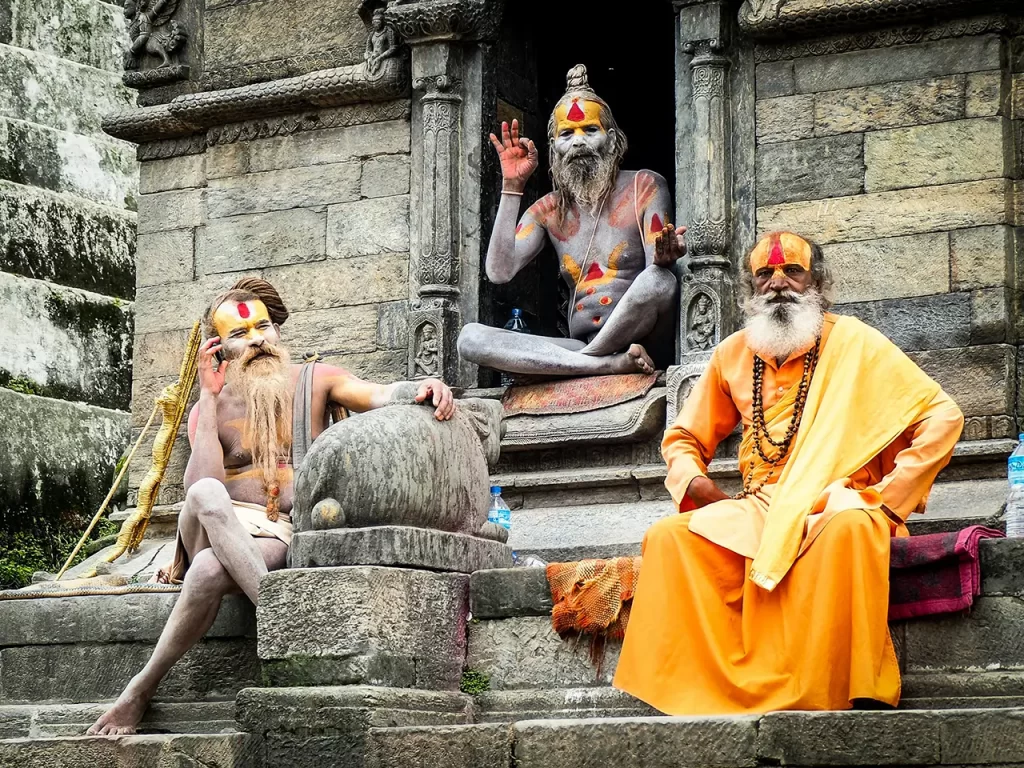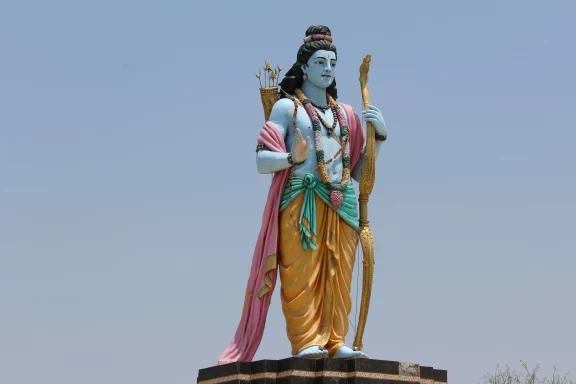Religion has always been a fundamental aspect of human society, shaping cultures, ideologies, and worldviews. Two of the world’s major religions, Hinduism and Islam, have rich histories and deep-rooted beliefs that have influenced millions of people for centuries. In this exploration, we delve into the origins and fundamental disparities between these two ancient faiths.
Origins of Hinduism

Hinduism: A Tapestry of Beliefs
Hinduism, often regarded as the world’s oldest living religion, is a complex tapestry of beliefs, practices, and traditions that have evolved over millennia. Unlike many other religions, Hinduism does not have a single founder or a central religious authority. Instead, it encompasses a diverse range of beliefs and practices. These have evolved over thousands of years, influenced by various cultures, philosophies, and historical contexts.
Vedic Roots
The roots of Hinduism can be traced back to the ancient Indus Valley civilisation, with the earliest sacred texts known as the Vedas dating back to around 1500 BCE. These texts, composed in Sanskrit, form the foundation of Hindu religious thought and encompass hymns, rituals, and philosophical discussions. Over time, other important scriptures such as the Upanishads, the Mahabharata, and the Ramayana emerged, further shaping Hindu beliefs and practices.
Concepts of Dharma and Karma
Central to Hinduism are the concepts of dharma and karma. Dharma refers to one’s duty or moral responsibility in life. Karma denotes the law of cause and effect, where actions in this life determine one’s destiny in future lives. These concepts form the basis of Hindu ethics and spirituality, guiding individuals towards righteous living and spiritual growth.
Origins of Islam

The Prophet Muhammad and the Revelation of the Qur’an
Islam, which emerged in the 7th century CE, traces its origins to the Arabian Peninsula and the life and teachings of the Prophet Muhammad. According to Islamic tradition, Muhammad received revelations from Allah (God) through the angel Gabriel, which were later compiled into the holy book of Islam, the Qur’an. The Qur’an serves as the primary source of guidance for Muslims, addressing matters of faith, morality, and law.
The Five Pillars of Islam
Islam is built upon the Five Pillars, which are the foundation of Muslim faith and practice. These pillars include:
- Shahada (Declaration of Faith): The affirmation that there is no god but Allah, and Muhammad is his messenger.
- Salah (Prayer): The performance of five daily prayers facing towards Mecca.
- Zakat (Almsgiving): The obligation to give to charity and support those in need.
- Sawm (Fasting): The observance of fasting during the month of Ramadan as a form of self-discipline and spiritual reflection.
- Hajj (Pilgrimage): The pilgrimage to the holy city of Mecca, which is a duty for every Muslim who is able to undertake it.
The Spread of Islam
Following Muhammad’s death in 632 CE, Islam spread rapidly across the Arabian Peninsula and beyond. the military conquests and missionary efforts of early Muslim leaders propelled this. By the 8th century CE, Islam had expanded into regions of Africa, Europe, and Asia, establishing vibrant Islamic civilisations and leaving a lasting imprint on world history.
Key Differences
Belief in God
One of the fundamental differences between Hinduism and Islam lies in their conception of God. Hinduism is characterised by its polytheistic nature, with a multitude of gods and goddesses worshipped by adherents. In contrast, Islam is strictly monotheistic, affirming the belief in one God (Allah) without any partners or associates.
Reincarnation vs. Resurrection
We find another significant disparity in their beliefs about the afterlife. Hinduism teaches the concept of reincarnation, whereby the soul is believed to undergo a cycle of birth, death, and rebirth until it achieves liberation (moksha) from the cycle of samsara. In contrast, Islam teaches the belief in resurrection and judgment. Individuals are resurrected on the Day of Judgment to be held accountable for their actions in this life.
Religious Practices
Hinduism and Islam also differ in their religious practices and rituals. Hindu worship often involves rituals, ceremonies, and offerings performed at temples and shrines dedicated to various deities. In contrast, Islamic worship is characterised by the performance of the five daily prayers, adherence to dietary laws (halal), and participation in communal worship on Fridays at the mosque.
Conclusion
In conclusion, Hinduism and Islam are two distinct religions with rich histories, diverse beliefs, and profound spiritual traditions. While they share some commonalities, such as an emphasis on ethical living and devotion to the divine, they also exhibit significant differences in their conception of God, beliefs about the afterlife, and religious practices. Understanding these disparities can foster greater appreciation and respect for the diversity of religious expression in our world today.








No Comments